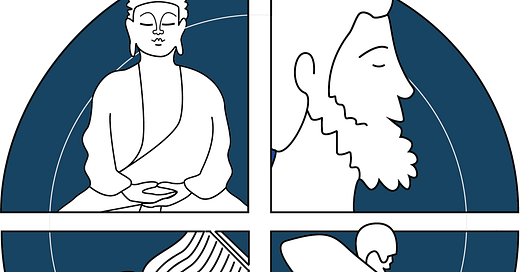Hi everyone,
Please enjoy this week’s 4 points!
1) Be your own referee
A short story on two-time MLB MVP Frank Robinson:
When he connected with the ball, Frank Robinson was positive that it was going all the way over Fenway’s leftfield wall. So positive, in fact, that he ran at half speed to first base watching the ball soar deep, deep toward the netting above the thirty-seven-foot-tall wall know in Boston as the Green Monster. Then suddenly the ball came up short, banging off the concrete and falling down to the waiting left fielder.
Robinson, usually a fast runner, had to settle for a single in what might have been a double or triple had he hustled.
In the end, his Oroles won in a blowout, so it didn’t seem to matter. A mistake easily forgotten, but one of some ten thousand at-bats in his twenty-one-year career. Except that afterward, Robinson walked into the manager's office and slammed down $200 on the man's desk.
He was fining himself.
He hadn't broken any league rules, but he had given less than his best. More important, he had violated a central tenet of baseball's culture— that you run out every hit — and his failure had cost the team.
He wasn't going to wait for someone to say something. He didn't care that they'd won. He didn't care if they'd let him get away with it. It doesn't matter that we had a good reason. Or if it worked out all right in the end. We have to hold ourselves to a high standard, higher than perhaps even the organization itself.
And we have to be brave enough to willingly accept the consequences when we fall short of those standards, in fact, calling them out even when nobody notices.
Source: Ryan Holiday’s new book Right Thing, Right Now
2) Thoughts on anxiety
I recently finished Mark Nesti’s Existential Psychology in Sport, here are some of the ideas he shared on anxiety:
Normal vs. Neurotic Anxiety: normal is related to the desire to develop, grow, and expand our self-awareness, and as such, is considered healthy and not something to be removed by psychotherapy. Neurotic anxiety amounts to the anxiety experienced as a result of repeated failure to face up to the discomfort of normal anxiety.
Kierkegaard maintained that anxiety is both part of and a requirement for the growth of a person, or as he terms it, a self. He advocated that by facing up to and moving through anxiety, the individual is better prepared to face the experience of anxiety again. As this process is repeated throughout life, individuals teach themselves faith and courage, and will be able to face their freedom and life, rather than devoting their energies to evading anxiety experiences.
Anxiety is only possible because the human is valuing being. They contend that anxiety is experienced when something that is important and valued is threatened.
Anxiety is both part of and a requirement for growth as a person.
3) A note on quality
I hope to one day live in a world where quality is the signal for when something is good. Today’s metrics for quality reduce down to whether or not influencers endorse it.
4) Quote of the week
"The usual story is that people with "good genes" are those with incredible athleticism or remarkable intelligence, but sometimes I wonder if the greatest genetic edge goes to the people with whatever genes encourage the desire to compete, the ability to stay focused, and the enjoyment of practice.” - James Clear
Thank you for your time and attention this week.
Onward and upward,
Kyle



